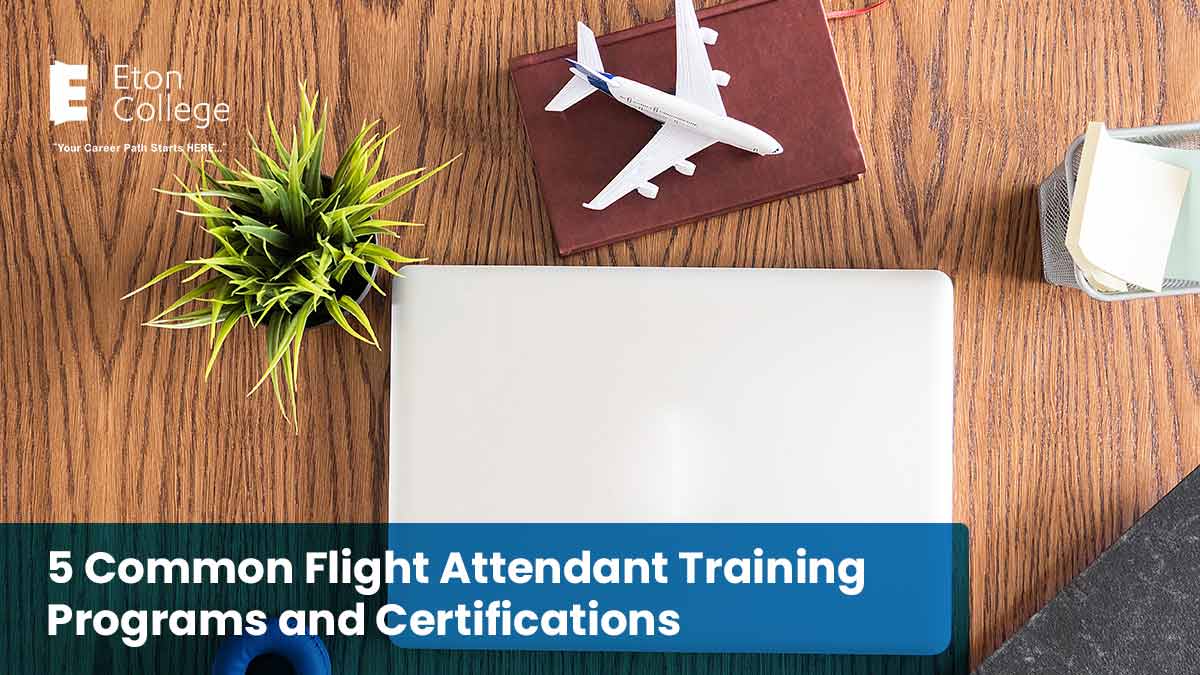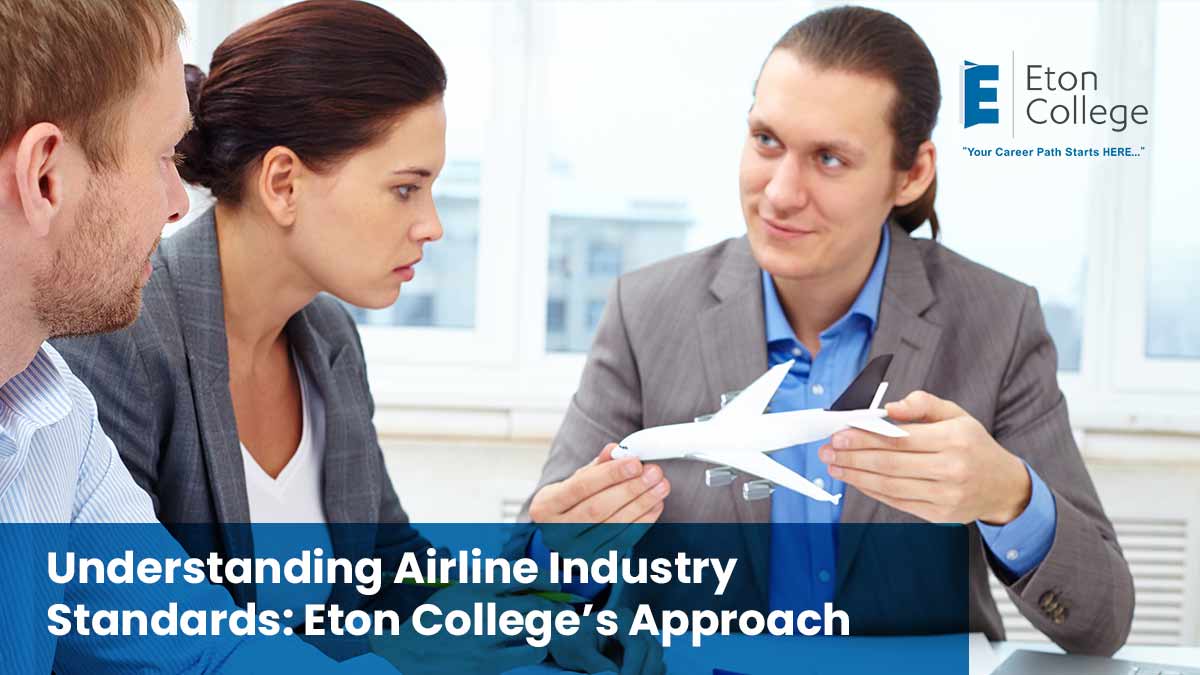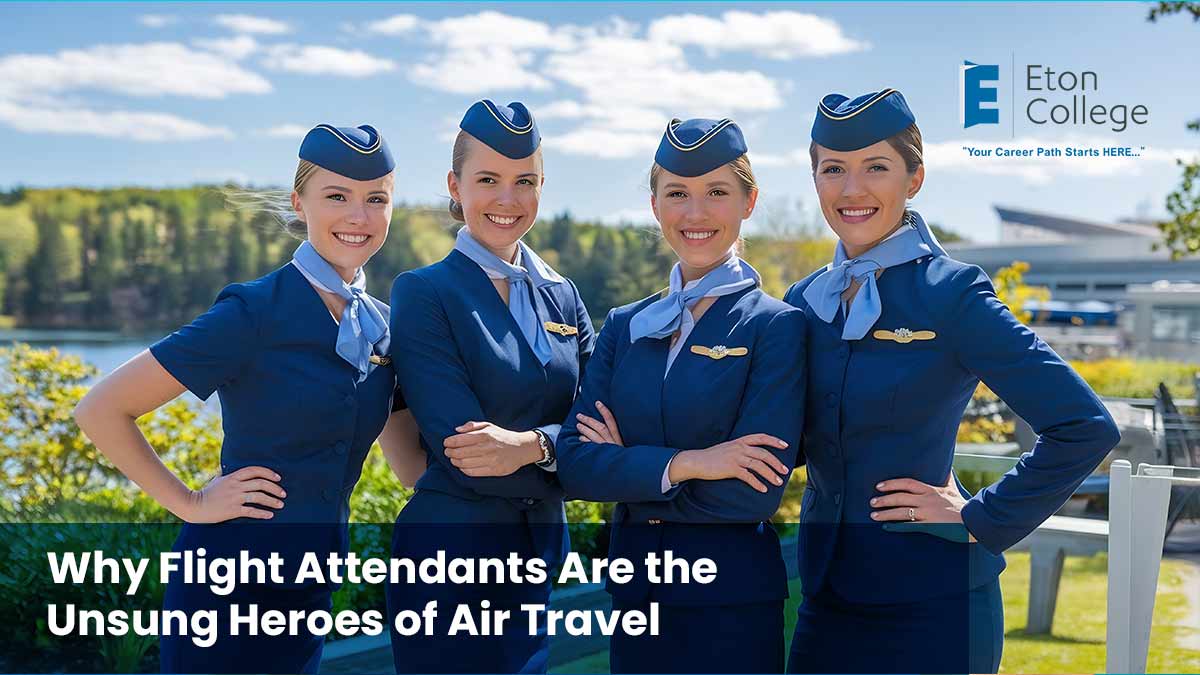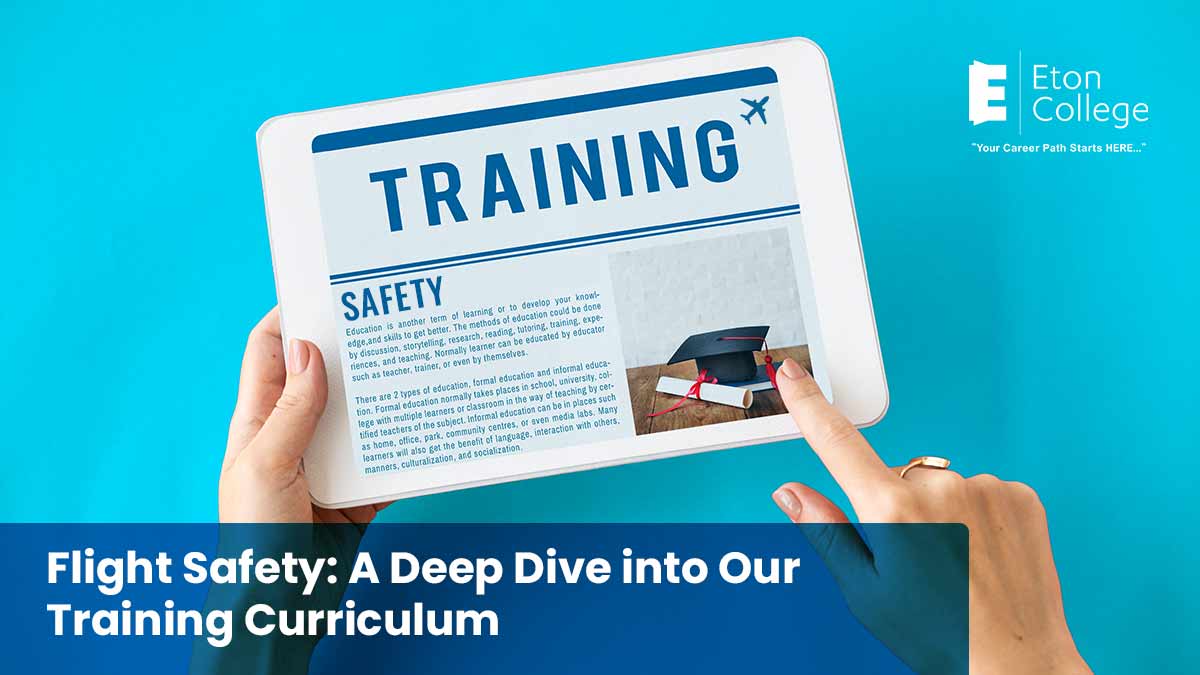- Flight attendants must undergo various training programs, including safety procedures, customer service, and airline-specific training.
- Eton College’s Flight Attendant Preparation Program offers a comprehensive curriculum and hands-on training to prepare students for a successful career in aviation.
- Certifications such as First Aid, CPR, and AED are essential for managing medical emergencies on flights.
- Understanding emergency protocols and enhancing customer service skills are critical components of flight attendant training.
Dreaming of a career as a flight attendant? You’re not alone! This exciting profession offers the chance to travel the world, meet fascinating people, and provide exceptional customer service. However, to embark on this high-flying career, you’ll need the right flight attendant training and certifications. Here, we explore five common flight attendant training programs and certifications that will equip you with the skills necessary to soar in this field.
1. Flight Safety and Emergency Procedures Training
Safety is the cornerstone of any flight attendant’s training. Airlines emphasize the importance of understanding and implementing emergency procedures. This training covers essential topics such as:
- Evacuation protocols: Learning how to safely guide passengers during an emergency landing or evacuation.
- Fire safety: Understanding how to handle onboard fires and use fire extinguishers effectively.
- Medical emergencies: Knowing how to respond to various medical situations that might arise during a flight.
Training often includes practical drills where you simulate real-life emergencies, ensuring you are prepared to act quickly and effectively. Airlines prioritize candidates who can demonstrate competence in these areas, making this training crucial for aspiring flight attendants. In fact, many airlines require specific certifications related to safety training before you can even apply for a position.
2. First Aid, CPR, and AED Certification
As a flight attendant, you may be the first responder during medical emergencies on board. Therefore, obtaining First Aid, CPR, and AED certification is not just beneficial; it’s often required. These certifications empower you to:
- Respond to medical incidents such as heart attacks or allergic reactions.
- Administer CPR and use an AED (Automated External Defibrillator) to save lives.
- Provide comfort and assistance to passengers during stressful situations.
Eton College’s Flight Attendant Preparation Program includes comprehensive training in First Aid and CPR, ensuring that students are well-equipped with the knowledge and skills necessary to handle medical emergencies effectively. By the end of the program, you’ll have the confidence to address health concerns while maintaining the safety and comfort of your passengers.
3. Customer Service Training
Exceptional customer service is at the heart of the flight attendant role. Airlines seek candidates who can provide outstanding service, even in challenging circumstances. Customer service training covers:
- Communication skills: Learning how to communicate clearly and effectively with passengers and crew.
- Conflict resolution: Strategies for diffusing tense situations and managing passenger complaints.
- Cultural sensitivity: Understanding diverse cultural backgrounds to provide respectful and inclusive service.
Hands-on experience in customer service roles can give you a competitive edge when applying for flight attendant positions. Programs that focus on customer relations help you develop the necessary skills to ensure passenger satisfaction and loyalty. Airlines often look for candidates who can maintain a positive attitude and provide solutions, even in the face of difficult circumstances.
4. Airline-Specific Training
Once you’ve secured a position with an airline, you will undergo additional training specific to that airline’s policies and procedures. This training often includes:
- Company policies: Familiarizing yourself with the airline’s mission, vision, and operational procedures.
- Aircraft systems: Learning about the specific aircraft you’ll be working on, including safety features and onboard equipment.
- Service standards: Understanding the expectations for in-flight service, including meal service and passenger interactions.
Airline-specific training is essential for ensuring that you can operate within the unique framework of each airline. Successfully completing this training not only prepares you for your role but also demonstrates your commitment to the airline’s values and standards. Some airlines even require ongoing training to keep up with new procedures and safety protocols.
5. Eton College Flight Attendant Preparation Program
One of the best ways to prepare for a successful career as a flight attendant is to enroll in a dedicated training program. Eton College’s Flight Attendant Preparation Program is specifically designed to equip students with the skills and knowledge needed to excel in the aviation industry.
Key Features of the Program:
- Comprehensive curriculum: Covering essential areas such as flight safety, first aid, customer service, and airline procedures.
- Hands-on training: Real-world simulations and drills that prepare students for various in-flight scenarios.
- Expert mentorship: Guidance from industry professionals who share their insights and experiences, helping students navigate their careers.
- Job placement assistance: Eton College provides support in connecting graduates with major airlines, enhancing their chances of securing employment.
By enrolling in Eton College’s program, you can confidently pursue your dream of becoming a flight attendant, fully equipped with the necessary Flight Attendant Training and Certification.
Understanding these five common training programs and certifications is essential for aspiring flight attendants. From mastering safety procedures to excelling in customer service, each aspect of your training plays a vital role in preparing you for this rewarding career.
If you’re ready to take the first step toward your dream job in the skies, consider enrolling in Eton College’s Flight Attendant Preparation Program. With comprehensive training and expert guidance, you’ll be well on your way to soaring through the clouds as a qualified flight attendant.
FAQ
- What qualifications do I need to become a flight attendant?
Most airlines require a high school diploma or equivalent, although many prefer candidates with a college degree. Additionally, customer service experience and fluency in multiple languages can enhance your application. - How long does flight attendant training take?
Training duration varies by airline, typically lasting from 3 to 6 weeks. Programs like Eton College’s Flight Attendant Preparation Program can provide foundational knowledge before airline-specific training. - Is First Aid training necessary for flight attendants?
Yes, First Aid, CPR, and AED certifications are crucial for flight attendants, as they often serve as the first responders to medical emergencies onboard. - What are the key responsibilities of a flight attendant?
Flight attendants ensure passenger safety, provide customer service, manage in-flight services, and handle emergencies. They play a vital role in creating a pleasant travel experience. - Can Eton College help with job placement after graduation?
Yes! Eton College’s Flight Attendant Preparation Program includes job placement assistance to help graduates connect with major airlines and secure employment in the aviation industry.




